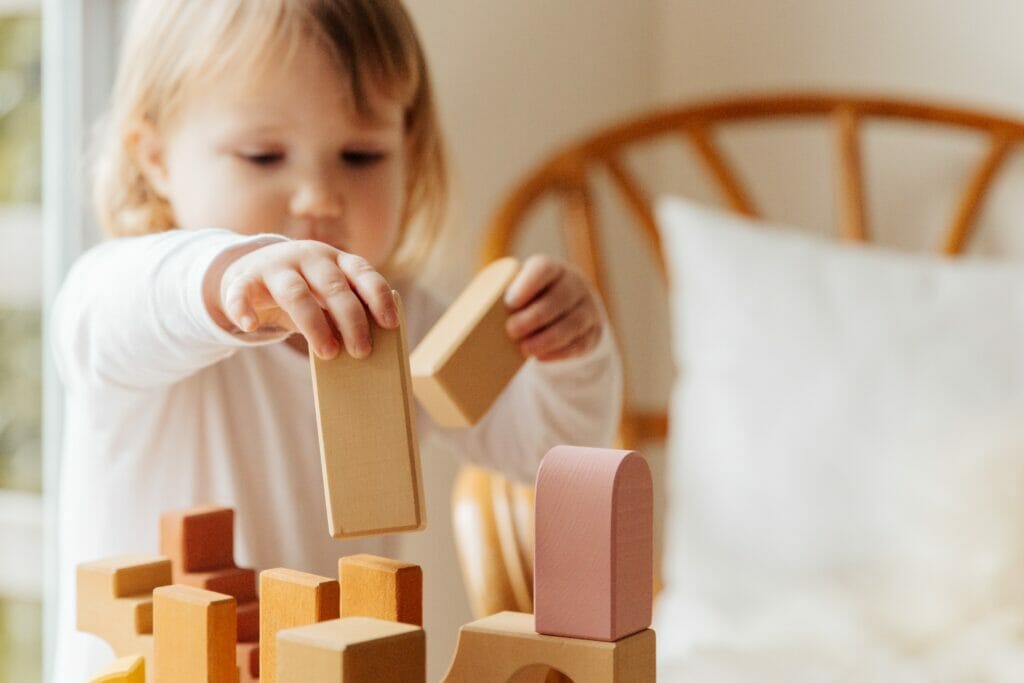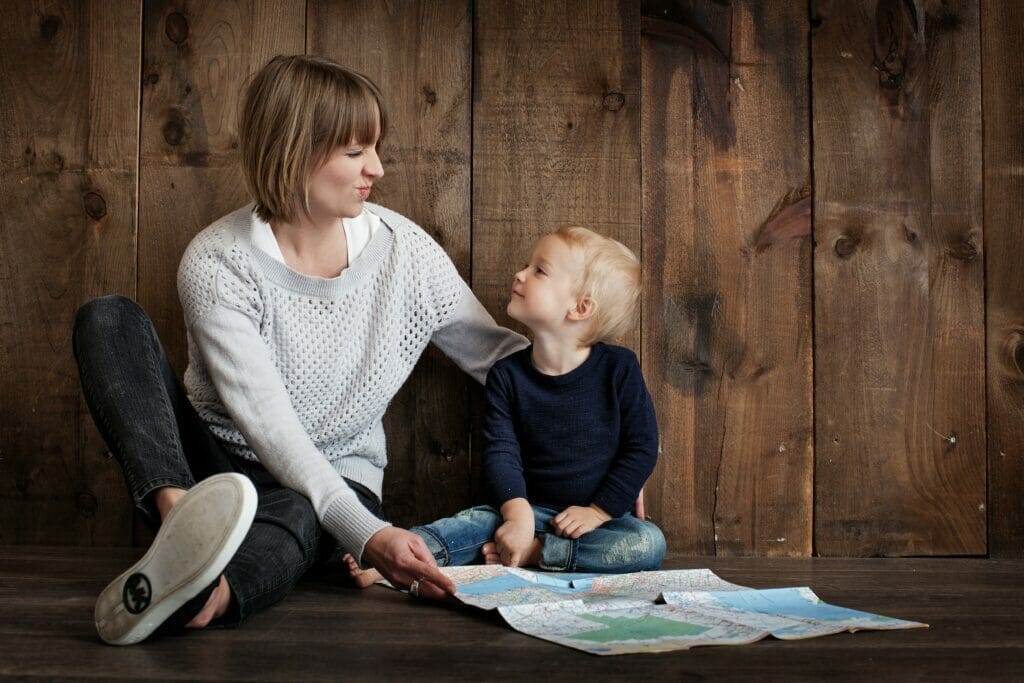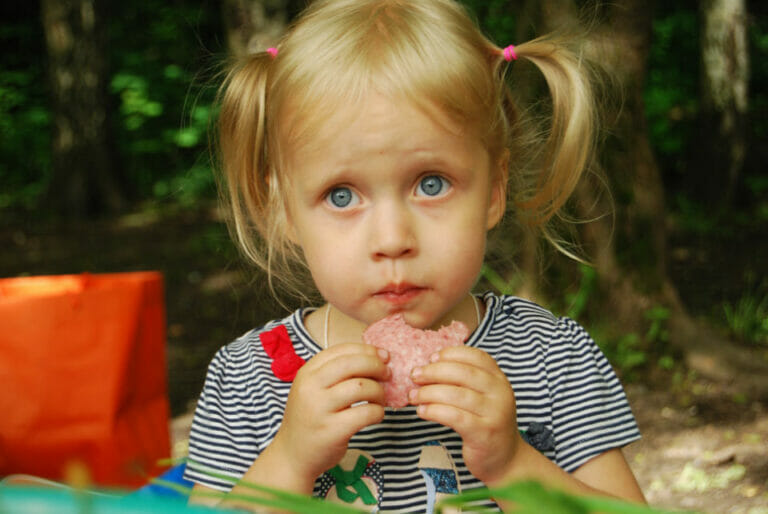![]()
Achieving balance for the nervous system

In our modern world of pervasive screen time, gaming and social media, many of us have actually become less social in the ways that are not only beneficial, but essential to our mental and physical well-being.
We all need in-person interactions to reap the full benefits of social connection, especially our children. Studies have shown that spending time with family can help reduce stress and anxiety, lead to a healthier lifestyle and lengthen your life!
Family is so important because of all the love and support it provides. Being with family helps build principles and improves overall mental health.
In fact, spending time with family is key to a person’s development, as it promotes adaptability and resilience and this is why Family Health is a core concern to many of us mums.
In this article we break down our chat with Clinical Psychologist Lynn Jenkins who discusses how we can best provide that loving support to our children in one of the podcasts on the Healthy Mummy Wellness app.
How to be a loving support to our children

Children will typically see a psychologist or similar practitioner because there has been a shift in behaviour. Whether that’s come from the school or parents it’s their behaviours that are the tell tale sign that they are experiencing life differently to the usual at the moment.
In a way, it’s like a squeaky wheel that needs attention. Lynn sees her job as a psychologist as looking at this behaviour and then wandering what’s going on to cause it. Behaviour is almost always a strategy used to meet a certain need.
We can use the typical iceberg analogy to explain this, where the tip of the iceberg is the behaviour and what we see and tend to respond to – especially if it’s particularly externalising behaviour. And a lot of people stop there.
Lynn says, “What is really important to know is what’s under the surface, the bigger part. And that’s the need or what the behaviour is adapting to. So in my first session with people I always check on the basic needs and how they are travelling at the moment.”
Sensory issues

We have all likely heard a lot recently surrounding children and sensory issues and it makes a lot of sense when trying to understand certain behaviours.
If children have sensory issues they’re often irritated by lots of loud noise, which could be likened to attempting to do maths with heavy metal music playing. It would be so frustrating and your nervous system would constantly be on high alert and their behaviour is simply trying to balance that out. In order for the nervous system to achieve this that child might tap or hum to try and balance it out.
This is what’s seen and it’s that behaviour that might be disturbing to other children. But what they’re doing is trying to bring a little balance to make themselves feel better, and calm.
Sensory issues tend to be dealt with in the world of Occupational Therapy but it’s still important for us to understand how it’s all intertwined. Where your Psychologist comes in what they tend to look at is how we are wired as humans. We come into this world with a need to connect and an absolute fear of being rejected and this is survival, it’s our wiring.
“We need to connect to survive and as humans we can’t come out and look after ourselves like animals we need another human to help us survive,” says Lynn.
“It’s very scary to our nervous system if we are rejected because that means we are distanced from the people who help us survive. It’s wired in and hugely important to babies, to children, to adults.
“So I always check to see what’s going on in their life to see what their perception, their experiences where they’re not so connected anymore or they don’t feel they belong, they’re not secure. And this often happens with little kids when they have friendship fights in school, it’s a broken connection. To us its scary and it upsets us and our nervous systems. It’s unconscious but understanding how we’re wired is really important.”
For example if we go to work and we’re not really sure we belong or not secure in our fit within the company, we may feel a bit on edge or a bit lost and children are exactly the same so it’s important to know what’s going on in their little lives.
Children have a desire to feel significant

Children need to feel significant in some way or competent at something. This can be as small as doing odd jobs or contributing to an activity or program at school, which gives them a sense of control. And this can be tricky sometimes.
They need a sense of control as they get older, and this may be temperament dependent, but they need a sense of having some influence in their world. This could mean they have a choice of what to eat for dinner rather than constantly being told how they go about their lives.
It speaks to this concept you may have all heard about where children have two buckets they need filling. A power bucket and an attention bucket. If they don’t get enough of either they will act out to get the attention or control they crave.
Understanding a child’s mental health

When it comes to understanding kids mental health, their behaviour is really a lens into being more curious and checking in on those basic needs, their experiences, and how they perceive things.
Their perception can be very different to ours so how they are interpreting what’s going on can vary immensely. Where do they belong in families, and do they feel connected. And this sense of where they belong within a family will also vary between siblings.
While not the same rule for all families a typical anecdotal example can be our firstborn children.
As Lynn explains, “As little babies to understand where they’re at developmentally – say you’re on the change table, you’re interacting with them, they see you, your proximity, you put your hand on them so they’re secure and you move away so they can’t see your face and little babies get distressed because their person isn’t there anymore.
“Their safety isn’t there anymore. With a first born when another little baby comes along for some kids that’s like a threat and their little nervous system gets activated because the feeling of safety and attention is interrupted and that can be interpreted as the connection being gone or the interpretation of survival being at stake.”
This is obviously not consciously but a good example of childrens mental health as children are great observers but terrible interpreters. This is because they don’t have the ability cognitively to understand what’s going on, they are instead governed by the nervous system.
But behaviours come from the nervous system so when we see behaviours it’s crucial to know our children. As parents we are best equipped to really know them, their baseline and how they are personality and temperament wise. How they would usually respond or react to things around them and can we recognise out of character lashings out or expressions of anger.
Recognising regressions
Some children may withdraw a little bit more, hide or even run away. We can also look for regression too – such as wetting the bed, clinging a bit more, crying, changes in sleep, or their appetite. All the little things that can be different to how we know them they are like red flags to help us recognise that something is going on.
Lynn suggests a tactic can be quite literal:
“I always say even draw an iceberg and put down all the behaviours we are observing at the top and write the list – belonging, connection, rejection, security, significant, control and where they are fitting with each category. All the things that might be impacting and what their behaviour might be trying to do something about.”
It’s about recognising a lack of connection and reach this need with an adjustment in family routine. Special time or one on one time is often talked about as a tactic for achieving balance and connection. And this is basically spending just a short amount of time each day with your child with no one else and no distractions. But Lynn urges that there are two critical things to consider to make this work.
“We have to do what they want so we might have to set up the parameters first and we can’t impose the rules so they have the control. The other thing is it has to be consistent because kid love getting our attention.
“So if we spend a bit of time with them and then when it’s time to stop they might carry on because they don’t know when they’re going to get it again sometimes. But if they know that it’s every day, eventually it will wind down because they know and we remind them “we’ll do this again tomorrow don’t worry”.
“That’s why we keep it short and having a timer isn’t a bad thing because they are used to things being timed. But keeping it short – 10-15 min makes it easier to put up with whatever they want to do and its achievable to do every day.”
Being connected

We know how busy life can be so it’s important not to concern yourself too much with the details. If you can’t achieve it outside of routine you can build it into bath time or turn something else into special time, there is flexibility. This exercise ticks both the connection and control boxes, or fills both buckets!
This is a great activity to try first to see if it shifts any of the behaviours. Always remember that kids do well when they can, but if something is off in their world it means they can’t cope so it’s coming from their protection zone.
When they are misbehaving they are not in their calm zone so it’s really important to understand this is only on because there is some sort of threat from their perception, and this is being sent to their brain and their nervous system.
So no matter how that behaviour is perceived by us as adults we have to meet that need with compassion and love and protection.
Get Access to the full Podcast in the Healthy Mummy Wellness App

The Healthy Mummy Wellness app is built to support mums’ mental, physical and social wellbeing. We have expert advice to help mums makeover their minds, transform their mood, manage their hormones, sleep better and engage with their family. You can listen to podcasts, read blogs, work out with our trainers and find healthy, family-friendly recipes from the palm of your hand.
Get the Healthy Mummy Wellness App here


